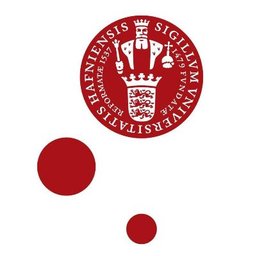Find Your Next Job
211-2184/25-2h Phd Fellowship In Computer Supported Cooperative Work (Cscw)
Posted on July 12, 2025
- København, Denmark
- No Salary information.
- Full Time

Tailor Your Resume for this Job
PhD fellowship in Computer Supported Cooperative Work (CSCW)
PhD Project in Novel Computer Science Teaching Methods considering Neurodiversity, Physical Computing, and Universal design in teaching
Computer Science
Faculty of SCIENCE
University of Copenhagen
Human Centred Computing Section invites applicants for a PhD fellowship in Computer Supported Cooperative Work (CSCW) in the project Novel Computer Science Teaching Methods considering Neurodiversity, Physical Computing, and Universal design in teaching. The PhD project is part of the research project NeuroGen Computing Research Project, which is financed by Novo Nordisk Foundation.
Start date is (expected to be) February 1st 2026 or as soon as possible thereafter.
The project
Women leave computer science at twice the turnover rate of men. Neurodivergent people have an increased risk of dropping out of education due to isolation and burnout. Neurodiversity manifests differently across genders, and until recently, neurodiverse women in computing have been ignored. Late-diagnosed women are the fastest-growing category of newly diagnosed university students. We need new DEI approaches that bridge gender and neurodiversity in computer science.
NeuroGen Computing Research Project builds upon the FemTech research program, and has the long-term vision to reduce the risk of isolation, stigma, and burnout for neurodivergent computer science students with intersecting diversity dimensions. We will create enabling organizational conditions for diverse students to thrive while at the university and prepare them for a successful career afterward.
To achieve this vision, NeuroGen Computing will 1) Design and create a robust infrastructure in which data, knowledge and information on disability and accessibility can be used; 2) Develop, implement, and scale novel computer science teaching in the first-year computer science bachelor’s program; 3) Create, implement, and anchor novel bachelor’s/Master thesis supervision tools supporting interaction between students and supervisors displaying diverse neurotype constellations.
This PhD project will develop, implement, and scale novel computer science teaching (e.g., programming, problem-solving, and algorithmic thinking) in the first-year computer science bachelor program based upon successful FemTech principles, inclusive curriculum design, and physical computing. Concretely, the PhD project will a) develop best practices for inclusive curriculum design for computer science programming courses, b) create innovative teaching modules for programming, problem-solving, and algorithmic thinking based on interdisciplinary cases, inclusive curriculum design, and physical computing, and c) make recommendations and plans for long-term scaling of innovative teaching based upon inclusive curriculum design.
Who are we looking for?
We are looking for candidates within the field(s) of Computer Supported Cooperative Work (CSCW)/Human Computer Interaction/Computing Education. Relevant backgrounds include but are not limited to computer science education, accessibility, and neurodiversity. Knowledge about how to teach programming and how to create enabling conditions for neurodiversity in the classroom would be preferred. The candidate needs excellent collaborative skills and the ability to support, design, and execute parts of the programming teaching in collaboration with the course responsible. Insights into quantitative and qualitative data collection in computer science teaching would be considered beneficial.
Our group and research- and what do we offer?
The NeuroGen Computing research group will include 3 faculty, 2 PhD students, 1 post doc, a project manager, and a student support when all are hired and is situated within the HCC section. The Human-Centred Computing section aims to fundamentally understand and improve the relationship between computational technology and people. Our research focuses on using computing to support people’s activities and well-being; inventing new ways for people to interact with technology, and understanding how human capabilities are influenced by technology. We are a diverse and highly collaborative group of researchers who strive to provide a welcoming, supportive, and caring environment for all. There are approximately 10-14 PhD students in the HCC section.
At DIKU, we have approximately 115 PhD students across 8 research sections, and as a PhD student at DIKU you are automatically part of the PhD communities across DIKU organized through regular PhD topic lunches with different themes. Creating an inclusive environment is critical for successful research, and creating enabling, supportive environment for our researchers is important to use.
The group is a part of the Department of Computer Science, SCIENCE Faculty, University of Copenhagen. We are located in Copenhagen.
We offer creative and stimulating working conditions in dynamic and international research environment.
- Principal supervisor (PI) is Professor Pernille Bjørn, Department of Computer Science, pernille.bjorn@di.ku.dk
The PhD programme
Option A: Getting into a position on the regular PhD programme
A three-year full-time study within the framework of the regular PhD programme (5+3 scheme).
Qualifications needed for the regular programme
To be eligible for the regular PhD programme, you must have completed a degree programme, equivalent to a Danish master’s degree (180 ECTS/3 FTE BSc + 120 ECTS/2 FTE MSc) related to the subject area of the project. For information of eligibility of completed programmes, see General assessments for specific countries and Assessment database.
Terms of employment in the regular programme
Employment as PhD fellow is full time and for maximum 3 years.
Employment is conditional upon your successful enrolment as a PhD student at the PhD School at the SCIENCE Faculty University of Copenhagen. This requires submission and acceptance of an application for the specific project formulated by the applicant.
Terms of appointment and payment accord to the agreement between the Danish Ministry of Taxation and The Danish Confederation of Professional Associations on Academics in the State. The position is covered by the Protocol on Job Structure.
Option B: Getting into a position on the integrated MSc and PhD programme
Qualifications needed for the integrated MSc and PhD programme
If you do not have an education equivalent to a relevant Danish master´s degree, you might be qualified for the integrated MSc and PhD programme, if you have an education equivalent to a relevant Danish bachelor´s degree. Here you can find out, if that is relevant for you: General assessments for specific countries and Assessment database.
Terms of the integrated programme
To be eligible for the integrated scholarship, you are (or are eligible to be) enrolled at one of the faculty’s master programmes in MSc in Computer Science.
Students on the integrated programme will enroll as PhD students simultaneously with completing their enrollment in this MSc degree programme.
The duration of the integrated programme is up to five years, and depends on the amount of credits that you have passed on your MSc programme. For further information about the study programme, please see: SCIENCE www.science.ku.dk/phd, “Study Structures”.
Until the MSc degree is obtained, (when exactly two years of the full 3+5 programme remains), the grant will be paid partly in the form of 48 state education grant portions (in Danish: “SU-klip”) plus salary for work (teaching, supervision etc.) totalling a workload of 150 working hours per year.
A PhD grant portion is currently (2025) DKK 7.086 before tax.
When you have obtained the MSc degree, you will transfer to the salary-earning part of the scholarship for a period of two years. At that point, the terms of employment and payment will be according to the agreement between the Ministry of Finance and The Danish Confederation of Professional Associations on Academics in the State (AC). The position is covered by the Protocol on Job Structure.
We are looking for the following qualifications:
- Professional qualifications relevant to the PhD project
- Relevant publications
- Relevant work experience
- Other relevant professional activities
- Curious mindset with a strong interest in Diversity, Equity and Inclusion in computing
- Good language skills
***************************************************************************
Application and Assessment Procedure
Your application including all attachments must be in English and submitted electronically by clicking APPLY NOW below.
Please include:
- Motivated letter of application (max. one page), including reflections on diversity and expectations for collaboration with the research team, with fellow PhD students and post-docs, with the PI and Co-PIs, etc.
- Your motivation for applying for the specific PhD project and reflections on how you would approach the project, and above mentioned deliverables.
- Curriculum vitae including information about your education, experience, language skills and other skills relevant for the position
- Original diplomas for university degrees and transcript of records in the original language, including an authorized English translation if issued in another language than English or Danish. If not completed, a certified/signed copy of a recent transcript of records or a written statement from the institution or supervisor is accepted.
- Publication list (if possible)
- Reference letters (if available)
Application deadline:
The deadline for applications is September 14th, 2025, 23:59 GMT +2.
We reserve the right not to consider material received after the deadline, and not to consider applications that do not live up to the above mentioned requirements.
The further process
After deadline, a number of applicants will be selected for academic assessment by an unbiased expert assessor. You are notified, whether you will be passed for assessment.
The assessor will assess the qualifications and experience of the shortlisted applicants with respect to the above mentioned research area, techniques, skills and other requirements. The assessor will conclude whether each applicant is qualified and, if so, for which of the two models. The assessed applicants will have the opportunity to comment on their assessment. You can read about the recruitment process at https://employment.ku.dk/faculty/recruitment-process/.
Interviews with selected candidates are expected to be held in week 42-43, online using zoom.
For specific information about the PhD fellowship, please contact the principal supervisor.
General information about PhD study at the Faculty of SCIENCE is available at the PhD School’s website: https://www.science.ku.dk/phd/
The University of Copenhagen wishes to reflect the surrounding community and invites all regardless of personal background to apply for the position.
Københavns Universitet giver sine knap 10.000 medarbejdere muligheder for at udnytte deres talent fuldt ud i et ambitiøst, uformelt miljø. Vi sikrer traditionsrige og moderne rammer om uddannelser og fri forskning på højt internationalt niveau. Vi søger svar og løsninger på fælles problemer og gør ny viden tilgængelig og nyttig for andre.
Info
Tailor Your Resume for this Job
Share with Friends!
